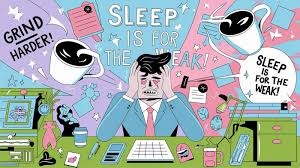The dream of the beleaguered young pro—working 60-hour weeks, perpetually "on," and basking in fatigue—has long been hailed as the ultimate symbol of ambition. But in 2025, that fantasy is crumbling, and nowhere is the devastation more apparent than with Gen Z. The youngest workers in the office are warning the world: hustle culture is not just unsustainable, but it's exhausting them before they're 25.
The Statistics of Gen Z Burnout
More recent studies tell a dire story. Over half (55%) of employees under the age of 30 have already had their work performance at the office compromised by burnout, versus just 17% of employees aged over 65. Almost two-fifths (39%) of young adults have been clinically diagnosed or diagnosed themselves with depression, and 44% say they feel burnt out—considerably higher than previous generations. Less than three in ten Gen Z full-time employees say they are holistically healthy, including social, mental, physical, and financial well-being.
Burnout is not a singular event. For Gen Z, it is the cumulative effect of unrelenting stresses: long work hours, crunch time deadlines, financial uncertainty, and the adoption of "hustle culture" as a right of passage. The expectation to always be on call—answering emails at midnight, sacrificing weekends, and blurring the line between work and life—has taken firm root in much of the world. The pandemic merely sped up the process, as remote work eliminated the remaining walls between work and personal life.
Historically, young workers entered the job market with enthusiasm. Today, however, engagement among those under 35 has plummeted, with morale lower than any time in the past decade. Many Gen Z employees report feeling isolated, unsupported, and unclear about expectations at work. The rapid shift to remote work, while seemingly ideal for digital natives, has actually left many 20-somethings craving in-person mentorship and social connection—needs that Zoom meetings can’t fulfill.
Adding to this is the fear of job insecurity. Redundancies, changes in company fortunes, and technological advancement have filled 78% of adults under 30 with a fear that automation will have a negative effect on their working lives. Such unpredictability renders the traditional adage that hard work today promises success tomorrow hollow.
For years, hustle culture was a badge of honor. Boomers and millennials swallowed that success involved sacrifice, unpaid overtime, and making their job their whole self. Gen Z isn't getting the lesson of paying for ambition in this way. They're not "lazy" or "entitled" to want boundaries—they're just not fetishizing burnout as the price of ambition.
Burnout is a recognized medical condition, proven emotionally, physically, and behaviorally. Chronic stress creates anxiety, depression, and even sickness. Gen Z's willingness to speak openly about experiencing these challenges exposed the toxic underbelly of hustle culture—and compelled bosses to confront a workplace disaster that cannot be dismissed.
Gen Z's answer isn't quiet quitting—it's a loud redefinition of how to succeed. They're asking for meaningful work, not busywork; fulfillment, not followers. The new mantra is to make recovery a priority as mercilessly as deadlines, and to define success in terms of impact and well-being, rather than hours worked or promotions earned.
Firms that have already started reducing 60-hour weeks are already reaping the rewards: greater creativity, improved mental well-being, and more productive working practices. Gen Z is driving the demand for four-day weeks, digital detoxes, and real benefits such as mental health care, student loan repayment help, and paid time off. They're more likely to leave jobs that conflict with their values or lack a good work-life balance—63% rank balance as their number one value, above pay.
And now what? The demise of hustle culture is not the demise of aspiration—this is the start of a more enlightened era of momentum. Managers need to see that burnout is not a matter of personal failure but one of system. Change needs to be both organisational and one of cultural shift: healthy boundaries, caring benefits, and real commitment to the welfare of workers.
As Gen Z continues to rebel against the lie that pain gets you there, they're not only saving themselves—They're giving you a blueprint for better, kinder workspaces. The future is for those who opt to flourish, not merely survive.
"2025 is the wake-up call: the illusion that suffering now will be repaid with future success is over. The reality? You can't cash misery forever. The revolution starts with one word: enough."
Hustle culture is on its deathbed, and Gen Z is in its funeral procession—not because they don't care, but because they are militant about living, not working. The rest of us would be wise to follow their lead.





